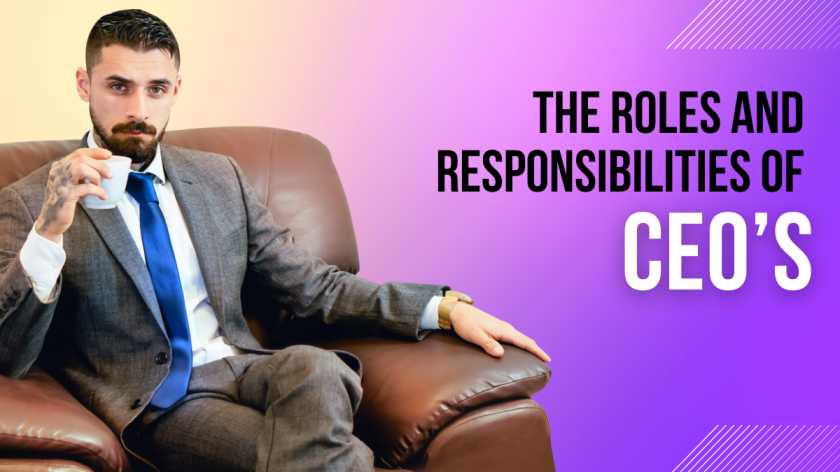How to become a CEO in 2025 or future?
Note: If you read the whole article, I give you garuantee that after reading this article , You will be very thankful to me for such a useful and informative article. You will definitely learn something from this.
CEO(Chief Executive Officer)
What is exactly a CEO?
What are the role and responsibilites of CEO?
1.Setting executive and organisational strategy
2. Financial management
3. Making decisions
4.Managing resources
5. Operations management
6.Monitor company performance
7. Communicating with Stakeholders
8. Creating a good work environment
Having a positive attitude toward those you disagree with and controlling your emotions to resolve conflicts are both essential components of clear and compassionate communication. establishing the company's values and ensuring that all stakeholders understand them, as well as developing and disseminating a vision so that everyone is aware of and in agreement with the organization's vision.
9. Long-term goal setting
10. Building the Senior Leadership Team
The chief financial officer (CFO), chief operating officer (COO), and any other C-suite positions that may exist (chief risk officer, chief technology officer, chief strategy officer, chief investment officer, etc.) are all part of the executive leadership team.
Although the Board typically defers to the CEO's recommendation or recommendations, it does have final (formal) authority over hiring decisions at the C-level in many organizations.
10 secret hacks that people don't know
1. They break out of their comfort zone
Don’t get too comfortable with your schedule. Break free from the norm every once in a while in order to welcome inspiration and new energy. For example, Raaja Nemani, co-founder and CEO of BucketFeet told Inc. Magazine, “Every day, I force myself to do something that is out of my comfort zone. If I hadn’t left my comfort zone back in 2008 to buy that one-way ticket to Buenos Aires, I never would have met my business partner, Aaron Firestein, and BucketFeet would never exist.”
2. They don’t waste a second
When CEOs find themselves in transit – during the morning or afternoon commute, for example – they use the time to continue learning or working. Listening to self-improvement books in the car is one way to put that time to good use. Listening to the news, learning another language or scheduling important calls during the commute are other options for making the most of that time.
3. They seek inspiration
Successful CEOs like to learn from other successful people by reading and watching speeches, for example. Platforms like TED allow for a rapid exchange of ideas from experts around the world. It’s important to pay attention and listen to what experts in your field are saying.
4. They create a cocoon of support
Surround yourself with people who care about you and want to see you succeed. Having a strong support system will make a big difference when times are tough at the office. Professionally, you also want to be around people who have complementary skills to yours so that together you are a stronger and more versatile team.
5. They exercise daily
Exercising is a great way to start or end the workday. Exercise helps to relieve tension, clear the mind and to make room for creativity. People who exercise are stronger and happier. It really helps to have an exercise routine to get through problems that arise in the office.
6. They are ALWAYS on time
Being punctual is an important habit for anyone who wants to succeed in the business world and wants to be respected by their colleagues. Andy Bailey, the founder of Petra, told Inc. Magazine, “I strive to be on time for every appointment, every day, without exception. This may seem like a no-brainer in the business world, but you would be surprised how many people still don’t make this a priority. It’s mind-boggling. If a leader is consistently late, it tells others that he or she is unreliable or has no respect for the time of the individuals he or she works with. If he or she is on time, the opposite is true.”
7. They say “yes” whenever possible
Always take advantage of new opportunities to network and learn. It’s important, while not stretching yourself too thin, to agree to as many meetings and engagements as possible. There’s always the opportunity to meet a new business partner, learn some new, vital information or become inspired by a colleague.
8. They nurture the body and mind
Yoga and meditation are incredibly useful tools to help relax, clear the mind and revitalize. They are common practices among successful business people and are optimally done at the beginning and end of each day in order to achieve a sense of calm.
9. They refuse to have a bad day
Some days are better than others, but even the worst days offer the opportunity to learn. Inc. Magazine quoted Dan Teran, co-founder and CEO of Managed by Q as saying, “I am a huge fan of Mike Bloomberg and recently saw him speak in a conversation with Alan Patricof at an event. At one point, he turned to Patricof and said something to the effect of, ‘Alan, I’m 73 years old, I don’t do doubt and I don’t do bad days.’ That really stuck with me. Running a company is really hard, and every day is different, but having a bad day is a choice.”
10. They eat well
Paying attention to nutrition is an important habit of the world’s most successful people. It’s important to incorporate good, clean eating into one’s daily routine. “I have been having the same breakfast of a protein shake with healthy fats, a fresh pressed juice full of vegetables, and a double espresso for as long as I can remember. While I press the juice, I recite the three things I am most appreciative of that morning,” Michael McDevitt, CEO of Terra’s Kitchen told Inc.











0 Comments